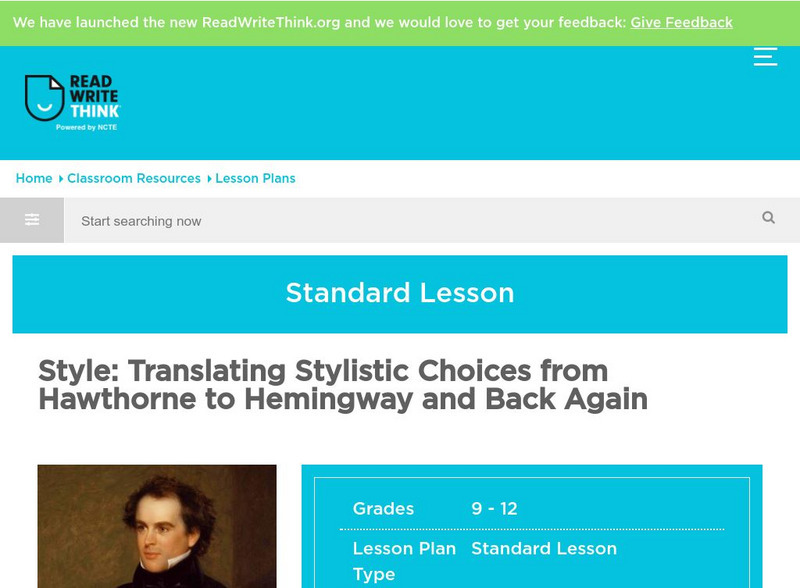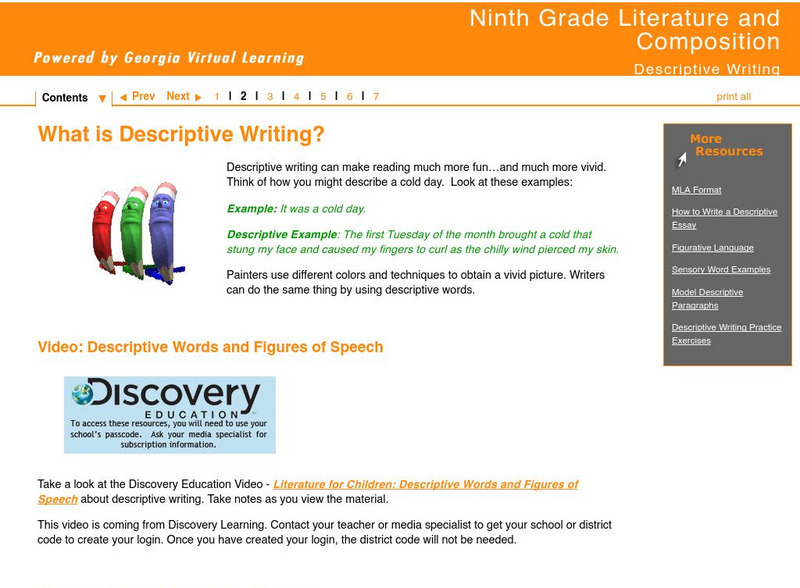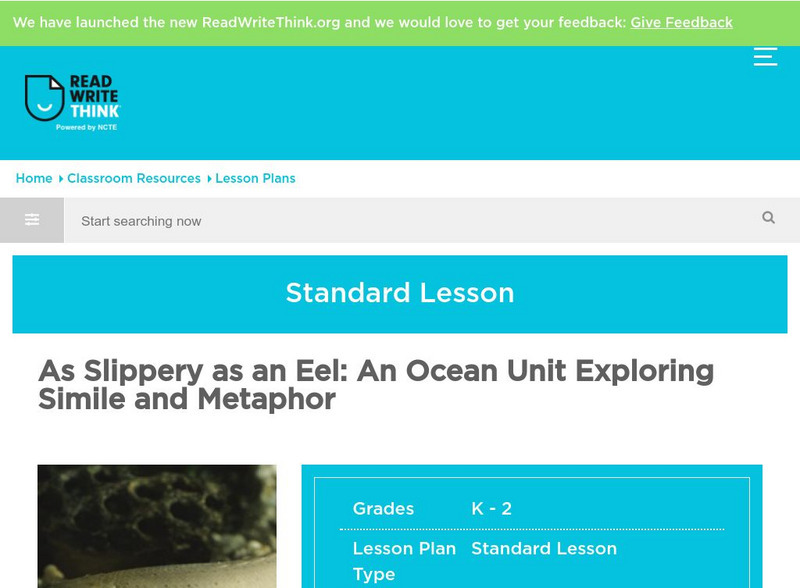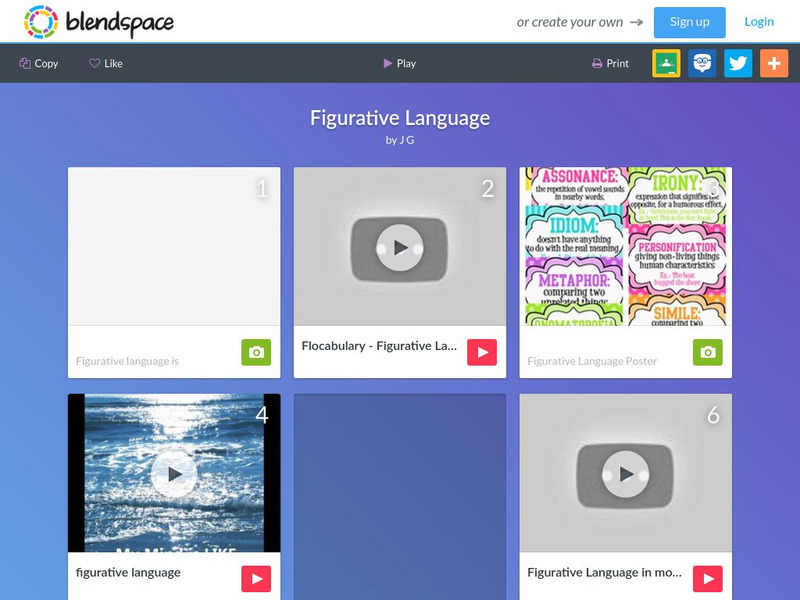Hi, what do you want to do?
Curated OER
Celebrating Martin Luther King Jr. Through Literature
Students can learn more about Martin Luther King, Jr. through these literature selections.
Curated OER
It's Time to Open Wide for O
Students recognize the short vowel o in written and spoken language. Through listening and decoding activities, they discriminate the vowel sound /o/ from other phonemes. Students match the phoneme and letter in words they read on index...
BBC
Walk Through History
First the Vikings raided Great Britain, and then they set up camp and moved in. Learners explore Viking times and discuss reasons why groups choose to settle. They construct a class timeline, engage in several online activities, and then...
Curated OER
The Practice Interview
Learners study the interview process by interviewing each other in pairs using a name game. They formulate and ask effective interview questions and practice interviewing skills. They invite a guest to their classroom or go outside the...
Curated OER
Sorting the Loyalist Documents
Students organize the Canadian Loyalist primary source documents and add more information to their primary source document concept maps.
Texas Education Agency
Texas Gateway: Understanding and Analysis of Literary Text: Syntax
A learning module that teaches students about syntax in six mini-lessons: Introduction, What is Syntax?, The Building Blocks of Syntax-Clauses and Phrases, Adding on-Figures of Speech, and Your Turn.
National Endowment for the Humanities
Neh: Edsit Ement: Their Eyes Were Watching God: Folk Speech, Figurative Language
In this lesson plan, students will consider Their Eyes Were Watching God: Folk Speech and Figurative Language. Worksheets and other supporting materials can be found under the Resources tab. This lesson provides students with an...
ReadWriteThink
Read Write Think: Style Choices of Hemingway and Hawthorne
Lesson plan which helps students understand the impact of the literary element of style on a piece of writing. Students read and analyze the works of Ernest Hemingway and Nathaniel Hawthorne. L.11-12.3 Language Functions/Style,...
ReadWriteThink
Read Write Think: Figurative Language Awards Ceremony
Contains plans for five to seven lessons that teach about figurative language like similes, metaphors, and personification by asking students to write award acceptance speeches that incorporate them. In addition to objectives and...
ReadWriteThink
Read Write Think: A Close Reading of Seamus Heaney's "Blackberry Picking"
Contains plans for two lessons that explain an inductive method for analyzing poetry. Seamus Heaney's "Blackberry Picking" is analyzed using this model as an example, although the method can be used on a variety of poems. In addition to...
Texas Education Agency
Texas Gateway: Imagery and Figurative Language (Grade 6)
This lesson focuses on the use of imagery and figurative language in writing to aid understanding and create images in the mind.
Writing Fix
Writing Fix: An I Pod Inspired Poetry Lesson: Paradox Poetry
Jack Johnson's "Inaudible Melodies" creates an interesting paradox of how society perceives itself versus the reality of how society really behaves. After listening to a second song using paradox in order to further understand the...
Texas Education Agency
Texas Gateway: Irony, Sarcasm, and Paradox (English Ii Reading)
[Accessible by TX Educators. Free Registration/Login Required] In this lesson, you will learn to evaluate the role of irony, paradox, and sarcasm in literary nonfiction such as speeches and essays. It includes the definitions and...
Georgia Department of Education
Ga Virtual Learning: Descriptive Writing: What Is Descriptive Writing?
This lesson focuses on what descriptive writing including defining it and discussing the characteristics. It includes links to several websites about descriptive writing including the Discovery Education Video: "Literature for Children:...
Sophia Learning
Sophia: Euphemisms
This slideshow lesson focuses on euphemisms including providing definition and background, lists of common examples, practice determining meaning, information about when to use, and links to more information about them. L.9-10.5a Figures...
Alabama Learning Exchange
Alex: Poetry and Music Fun With Chris Daughtry
This language arts lesson grabs students' attention by incorporating a popular musician. The lyrics to "Over You" include vivid language that makes identifying figures of speech intriguing. The students will identify similes, metaphors,...
ReadWriteThink
Read Write Think: An Ocean Unit Exploring Simile and Metaphor
Contains plans for four lessons that teach students about similes and metaphors using ocean themed resources. In addition to objectives and standards, this instructional plan contains links to sites used in the lessons as well as...
ReadWriteThink
Read Write Think: Finding Figurative Language in the Phantom Tollbooth
Contains plans for four lessons that use The Phantom Tollbooth by Norton Juster to teach about figurative language. In addition to objectives and standards, this instructional plan contains links to handouts and to sites used in the...
TES Global
Blendspace: Figurative Language & Tone
A twelve-part learning module with links to texts, videos, and websites on figurative language and tone.
TES Global
Blendspace: Figurative Language
A twelve-part learning module on figurative language including links to images, videos, a song, and a game to help students learn.
TED Talks
Ted: Ted Ed: Can You Solve the Troll's Paradox Riddle?
You and your brother have discovered another realm and set off exploring the new wonderful world. Along the way, you see a troll catching creatures in an enormous net. The troll agrees to release the creatures if you can come up with a...
ClassFlow
Class Flow: Figurative Language Review
[Free Registration/Login Required] This lesson helps students understand figurative language.
ReadWriteThink
Read Write Think: Writing Abc Books to Enhance Reading Comprehension
Contains plans for four lessons that are adaptable to many texts that learners may be reading. Students analyze the text for literary elements such as characters, setting, figures of speech, and themes, and then publish their findings in...
Georgia Department of Education
Ga Virtual Learning: American Literature; American Romanticism: Vocabulary
This lesson focuses on defining the literary terms in American Romanticism. It features a list of terms and an interactive crossword puzzle using them.




























